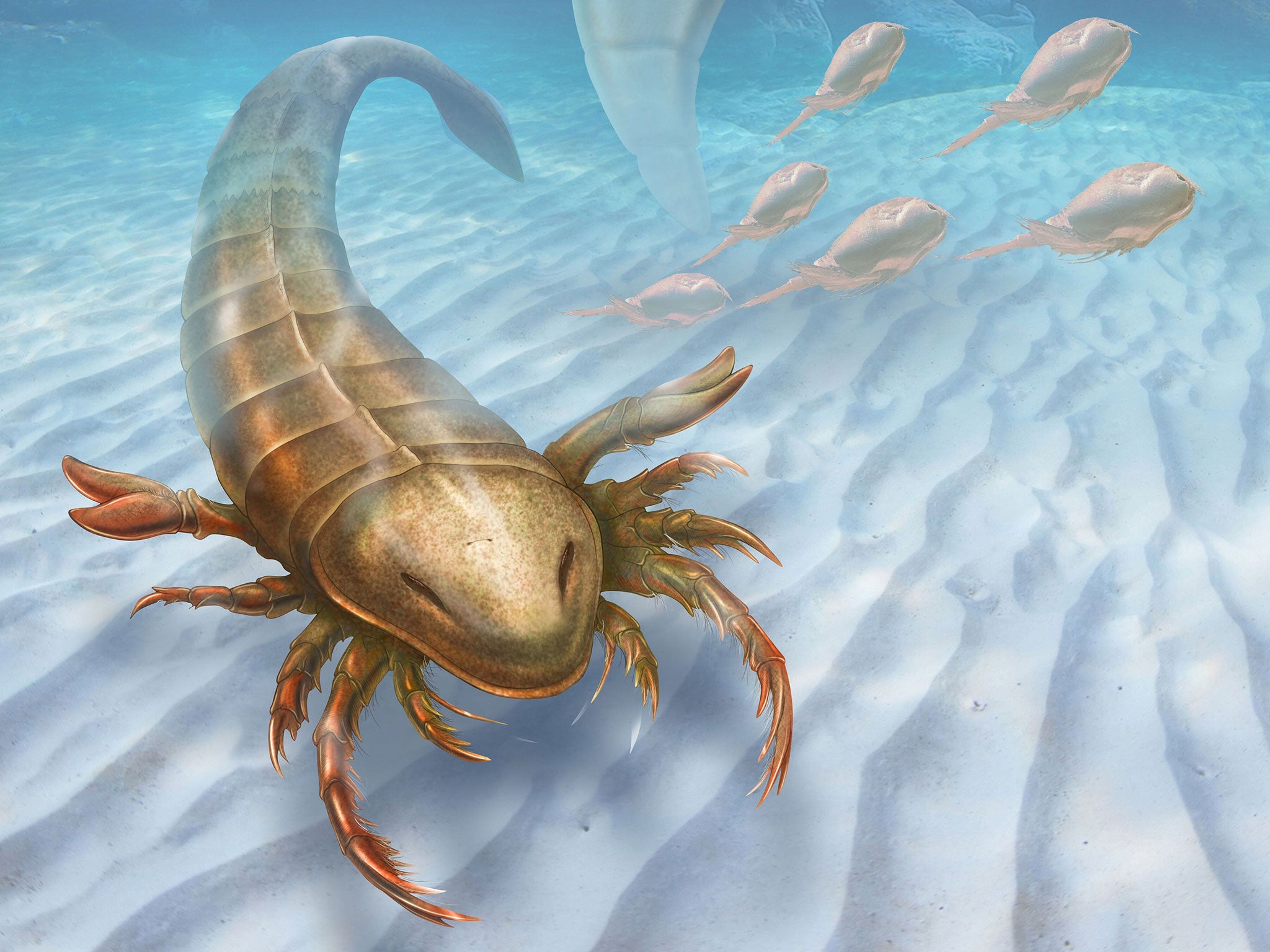Prehistoric sea scorpion that grew to 6ft in length named after Trojan warship
Scientists call predator Pentecopterus, after the ancient 'penteconter' ship

A monstrous creature from the distant past, named after a Trojan warship, could have stepped straight from the pages of Greek myth.
The newly discovered sea scorpion lived 467 million years ago and grew to a length of nearly 6ft.
It was one of the most powerful ocean predators of its time, with an exoskeleton “helmet” shielding its head, a sleek narrow body, and large grasping limbs for trapping prey. Scientists named the beast Pentecopterus decorahensis, after the “penteconter”– an ancient Greek ship rowed by 50 oarsmen that saw service in the Trojan War.
Although they look like relatives of lobsters, sea scorpions, or eurypterids, were the ancestors of modern spiders.
Lead researcher Dr James Lamsdell, from Yale University, said: “The new species is incredibly bizarre. The shape of the paddle – the leg which it would use to swim – is unique, as is the shape of the head.”
The creature, described in the journal BMC Evolutionary Biology, was identified from more than 150 fossil fragments excavated from the Winneshiek Shale in north-east Iowa, in the US.
Some of the body segments suggest a total length of up to 1.7m (5ft 7in), making it the largest known eurypterid from its era.
Press Association
Join our commenting forum
Join thought-provoking conversations, follow other Independent readers and see their replies
Comments
Bookmark popover
Removed from bookmarks